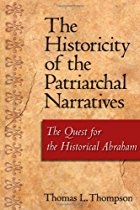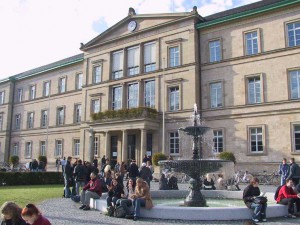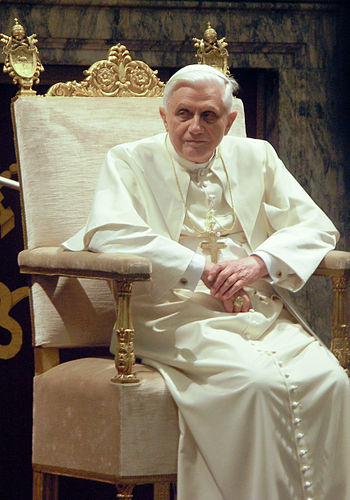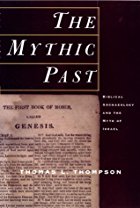
I am sure Maurice Casey will appreciate notification of a few oversights in his most recent book, Jesus: Evidence and Argument or Mythicist Myths. This post will alert him to a couple of minor errors in his treatment of Thomas L. Thompson’s background and scholarly standing. A future post will look at Casey’s criticisms of some of Thompson’s publications, although we have already seen how Casey wrongly classified Thompson’s recent publications as attempts to argue that there was no historical Jesus.
 Thomas L. Thompson first came to notoriety with The Historicity of the Patriarchal Narratives arguing that the biblical patriarchs (Abraham, Isaac, Jacob) were not historical persons. This was first published by de Gruyter in Berlin in 1974. It was written in Tuebingen where Thompson was a student of Herbert Haag (Catholic) and Kurt Galling (Protestant). Controversial at the time this view is now probably mainstream. Even more controversial was his 1992 publication, The Early History of the Israelite People, which found no room for the united monarchy nor even Kings David and Solomon. The main work by Thompson that Casey addresses is The Messiah Myth, a work that Casey misinterprets as an attempt to argue there was no historical Jesus.
Thomas L. Thompson first came to notoriety with The Historicity of the Patriarchal Narratives arguing that the biblical patriarchs (Abraham, Isaac, Jacob) were not historical persons. This was first published by de Gruyter in Berlin in 1974. It was written in Tuebingen where Thompson was a student of Herbert Haag (Catholic) and Kurt Galling (Protestant). Controversial at the time this view is now probably mainstream. Even more controversial was his 1992 publication, The Early History of the Israelite People, which found no room for the united monarchy nor even Kings David and Solomon. The main work by Thompson that Casey addresses is The Messiah Myth, a work that Casey misinterprets as an attempt to argue there was no historical Jesus.
This post shows where Maurice Casey is seriously misguided in what he writes about Thompson the person.
Casey introduces Professor Thomas L. Thompson as one who “claims to be a ‘scholar'” but whose competence and qualifications Casey considers “questionable” (p. 10).
Yes, Casey puts the word scholar in scare quotes. Further, Casey will grant nothing more than that Thompson “claims” to be a ‘scholar’. In fact Thompson is a scholar of international repute who has made groundbreaking contributions to the study of the Old Testament as indicated above. His qualifications and professional associations can be found on his Wikipedia article.
An American or European scholar?
Here is the biographical description Casey offers:
Thomas L. Thompson was an American Catholic born in 1939 in Detroit. He was awarded a B.A. at Duquesne University, a Catholic university in Pittsburgh, USA, in 1962, and a Ph.D. at Temple University, Philadelphia, Pennsylvania, in 1976. After several appointments, mostly in the USA, including the post of associate professor at Marquette University, a Jesuit, Roman Catholic university in Milwaukee, Wisconsin (1989-93), he was Professor of Theology at the University of Copenhagen from 1993-2009.
Casey focuses his readers’ attention on Thompson’s Roman Catholic, Jesuit and American associations. There is only one hint of Thompson’s status as a European scholar — a significant oversight given Casey’s patent loathing for most things American. Casey quotes his PhD student Stephanie Fisher’s comparison of “decent European scholars” with “second-rate semi-learned American ‘scholars’ (sic)” with approval – p.43.
The fact that Thompson is also a Dane and has lived and worked in Denmark since 1993 where as Professor of Old Testament he was the only Catholic in the Theology faculty is overlooked entirely. Thompson in fact spent eight months at Temple University in Philadelphia and has done his graduate studies in Europe: in Oxford and Tuebingen from 1962-1971 and as a research scholar in Tuebingen from 1969-1977.

Conservative Catholic background?
We have seen in previous posts how Casey dwells on his imaginary theme that most mythicists are former fundamentalists or conservative Catholics. We have found that even his own data contradicts his negative psychoanalysis of “mythicists” and those he mistakenly believes are “mythicists”.
Even in those cases where a mythicist or anyone open to the question of mythicism is known to have a fundamentalist or conservative Catholic background Casey fails to establish any causal link. I have noticed that this most fundamental of fallacies — assuming that a correlation is a proof of a causal relationship — is a common characteristic even of his own scholarly work attempting to argue for Mark’s use of Aramaic sources. One soon notices the same fallacy liberally spread throughout the writings (both informal comments and scholarly books) of two of his doctoral students.
Casey tars Thompson with the same conservative brush. Of Thompson he writes:
Having begun as a Catholic who followed the convictions fed him by the church, he has been converted to a different set of convictions. (p. 226)
Earlier Casey wrote of “mythicists” (without qualification so presumably including Thompson) the following:
At this point, it is again important that mythicists used to be conservative Christians: they did not believe that Jesus had natural brothers because they believed in the perpetual virginity of the Blessed Virgin Mary, a doctrine not known before the second century CE. They still do not believe that Jesus had natural brothers, but mythicists at this level are just like the fundamentalists whom they used to be – they have beliefs in accordance with their convictions, and if they have to replace the reasons for them, they go ahead and replace them with different ones. (p. 170)

In fact Thompson’s background in American Catholicism was the antithesis of anything conservative. One of Thompson’s “claims to fame” is in fact his career long conflict with Joseph Ratzinger who became Pope Benedict XVI. Is Casey truly unaware of this?
As an undergraduate Thompson was swept along by the “left-wing” Ecumenical Movement prior to Vatican II.
In Tuebingen (1963-1975) he was influenced by Hans Küng‘s understanding of Catholicism which became backbone to the theology behind the Vatican II reforms, although he always maintained a more liberal position than Küng. During this time Thompson was much more more involved with Kurt Galling and worked in both the Catholic and the Protestant faculties which worked particularly closely with each other in OT studies, especially in relation to the Tuebinger Atlas des Vorderen Orients project. See On Those We Influence for a brief reference to Thompson’s work with this project.
Thompson’s scholarship was rooted in the Religionsgeschichtliche Schule (Galling was editor of the third edition of the encyclopedia: Religion in der Geschichte und Gegenwart). His last six years in Tuebingen were involved with the Tuebinger Atlas des vorderen Orients on one hand and a deep conflict with Joseph Ratzinger over his dissertation (Historicity of the Patriarchal Narratives), on the other.
Casey himself spent six months in Tuebingen, so in his own words he might be said to have “no excuse” for his apparent failure to understand Catholicism, American or European, or any of Thompson’s background. Casey’s attempt to portray Thompson as a Conservative American Catholic, to use another favourite Caseyism, “deplorable”.
It is thought. . . it is said . . .
The way Casey then introduces the scholarly work of Thompson to his readers is quite interesting:
His early work, which is thought to have successfully refuted the attempts of Albright and others to defend the historicity of the most ancient parts of biblical literature history, is said to have negatively affected his future job prospects. (p. 24)
Oddly when Casey refers to a work for which Thompson is probably best known he switches from the active voice he used to paint him as a “regrettable” American to the passive voice in a manner that invites readers to be willing to doubt. Later whenever Casey quotes any of his opponents for similarly using the passive voice in a way that fails to identify who is responsible for some claim — and he does it at least ten times — he accuses them of being incompetent or deliberately misleading and vague (e.g. pages 53, 62, 74, 156, 209).
 As for “it being said” that Thompson’s critical views “negatively affected his future job prospects”, Casey is once again being mischievous. Thompson’s fortunes in the wake of the publication of his controversial thesis on the patriarchal narratives are a matter of public record. Presumably if Casey had read Thompson’s own account in The Mythic Past of how he was shut out from university teaching in the U.S. for nearly ten years, being obliged to become a full-time house-painter and handyman until 1985 when he was appointed an annual professor in the Ecole Biblique in Jerusalem, he would have written that “Thompson claims he was shut out . . . .”
As for “it being said” that Thompson’s critical views “negatively affected his future job prospects”, Casey is once again being mischievous. Thompson’s fortunes in the wake of the publication of his controversial thesis on the patriarchal narratives are a matter of public record. Presumably if Casey had read Thompson’s own account in The Mythic Past of how he was shut out from university teaching in the U.S. for nearly ten years, being obliged to become a full-time house-painter and handyman until 1985 when he was appointed an annual professor in the Ecole Biblique in Jerusalem, he would have written that “Thompson claims he was shut out . . . .”
That’s just the ad hominem. The fun starts when we compare Casey’s criticisms of Thompson’s writings with Thompson’s own words. That’s for another time.
If you enjoyed this post, please consider donating to Vridar. Thanks!

http://www.bibleinterp.com/opeds/critscho358014.shtml
This is Thompson’s story of his censorship.
I was going to quote some excerpts but really the whole thing needs to be read. So, here ’tis.
Thanks for this.
Another interesting thing is that Maurice Casey in his book likewise suggests that his own earlier works were refused publication because individuals in important places were opposed to propagating anything critical of Christianity. It might be worth quoting Casey here when his new book’s strongest supporters (McGrath, Hurtado) scoff at the idea that mythicist works are not accepted because of the views they espouse. (I am being half facetious. This book is testimony to how Casey’s imagination feeds him all sorts of nonsense about people he does not like.)
James McGrath has got an article on censorship on SBL.
Towards the end of that article he says “If we visit the Facebook page of Robert M. Price, another mythicist, and one of the few who has appropriate credentials, we find that he has embraced climate change denialism just as he has embraced mythicism. When one is open to conspiracy theory thinking about experts in one field, is it any surprise if they fall for it in others?” And I commented on this unfortunate wording both on SBL and on his blg (courteously I think, though maybe not) and my remarks I will post here if they don’t appear there.
He should add that Price supports the Tea Party ergo all mythicists have a propensity to join extremist political groups. I simply point to my recent posts tabling the evidence that published mythicists are as varied in their religious backgrounds as probably the rest of the population. McGrath is not interested in statistically valid arguments, only in finding opportunities to mock mythicists.
Presumably this means that McGrath will rule out any Biblical scholar who thinks Jesus really was resurrected as somebody who is ruled out as a serious thinker.
After all, if Price can be misled in a field in which he is not an expert, and so be revealed as an unserious thinker, how much more unserious can somebody be who falls for conspiracy theories in the very field in which he does claim to be an expert?
James McGrath – once again showing that there’s no fallacy he isn’t willing to embrace if it means he gets to use it as a club against people he doesn’t like.